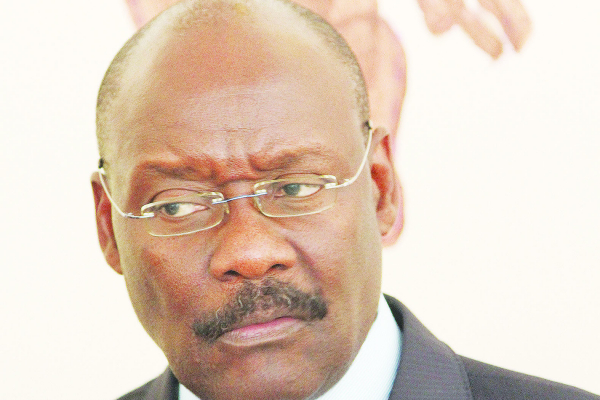
ZIMBABWE will this year spend a measly $25 per person on health, while government expenditure on health continues to fail to reach the 11,3% of Sub-Saharan Africa’s average, and 15% of the national budget as stipulated by the Abuja Declaration. BY VENERANDA LANGA
The amount of $25 that government will spend on each person this year is a drastic drop from $62 per capita in 2013 (World Health Organisation statistics) which government spent per person, and $58 per capita in 2014, as well as $48 per capita in 2011.
The figures show that health allocations per capita in Zimbabwe have drastically dwindled in the past years.
Community Working Group on Health (CWGH) executive director Itai Rusike, in a post-budget analysis, said government allocations on health had continued to be low (7,7% of the total health budget).
This, however, is a slight increase from 6,7% in 2016, but it is still inadequate as the health infrastructure needs serious rehabilitation, as well as the acute shortage of drugs that patients experience at health institutions in the country.
In the 2018 National Budget statement, Finance minister Patrick Chinamasa allocated $408 million to health, while more money was allocated to Defence ($420m), Home Affairs ($435m), Lands and Agriculture ($497m), and the highest allocation went to Primary and Secondary Education ($905m).
“Per capita (per individual person) health expenditure in the country is insufficient to guarantee adequate access and quality of healthcare as per capita health allocation stands at about $25 in 2018, up from $22 in 2017 and about $24 in 2016,” Rusike said.
“Per capita health spending is $650 (US dollars) in South Africa, $90 in Zambia and $200 in Angola, and the inadequate public financing of health has resulted in an overreliance on out-of-pocket and external financing which is highly unsustainable.” As a result, government would continue to rely on donor funding with development partners expected to pump in $239,6m, with Global Fund injecting $173,8m, Health Development Fund ($58,1m), and Global Alliance for Vaccines and Immunisation ($7,7m).
- Chamisa under fire over US$120K donation
- Mavhunga puts DeMbare into Chibuku quarterfinals
- Pension funds bet on Cabora Bassa oilfields
- Councils defy govt fire tender directive
Keep Reading
While Zimbabwe continues to fail to fund health care to the Abuja convention stipulations, other countries like Malawi, Rwanda, Madagascar, Togo and Zambia have managed to reach the Abuja target.
“In Rwanda and Uganda, they drastically reduced defence and security budgets in recent years to allow for scaling up of pro-poor expenditure on human and infrastructure development. Military and security spending have been shown to retard development by diverting government resources that could be put to better use. In fact, development, not military deterrence, is the best strategy for a safer society,” Rusike said.
He said developed countries spend relatively more on health, while poor developing countries like Zimbabwe spend relatively more on defence.
Zimbabwe spends about 6% of gross domestic product (GDP) on defence and security and only 2% on health.
“The United States spends 6,6% of its GDP on health care and only 3,8% of its GDP on defence. Japan spends 1% of its GDP on defence and 6,5% of its GDP on health care. Germany spends 1,4% of its GDP on defence and 8,6% of its GDP on health. Eritrea, on the other hand, spends 19,4% of its GDP on defence and only 3,2% of its GDP on health,” Rusike said.
He said while there was a slight improvement in the 2018 health allocation, it was still inadequate to cover the health needs of Zimbabweans.
Health minister David Parirenyatwa recently said he needed over $1 billion.











